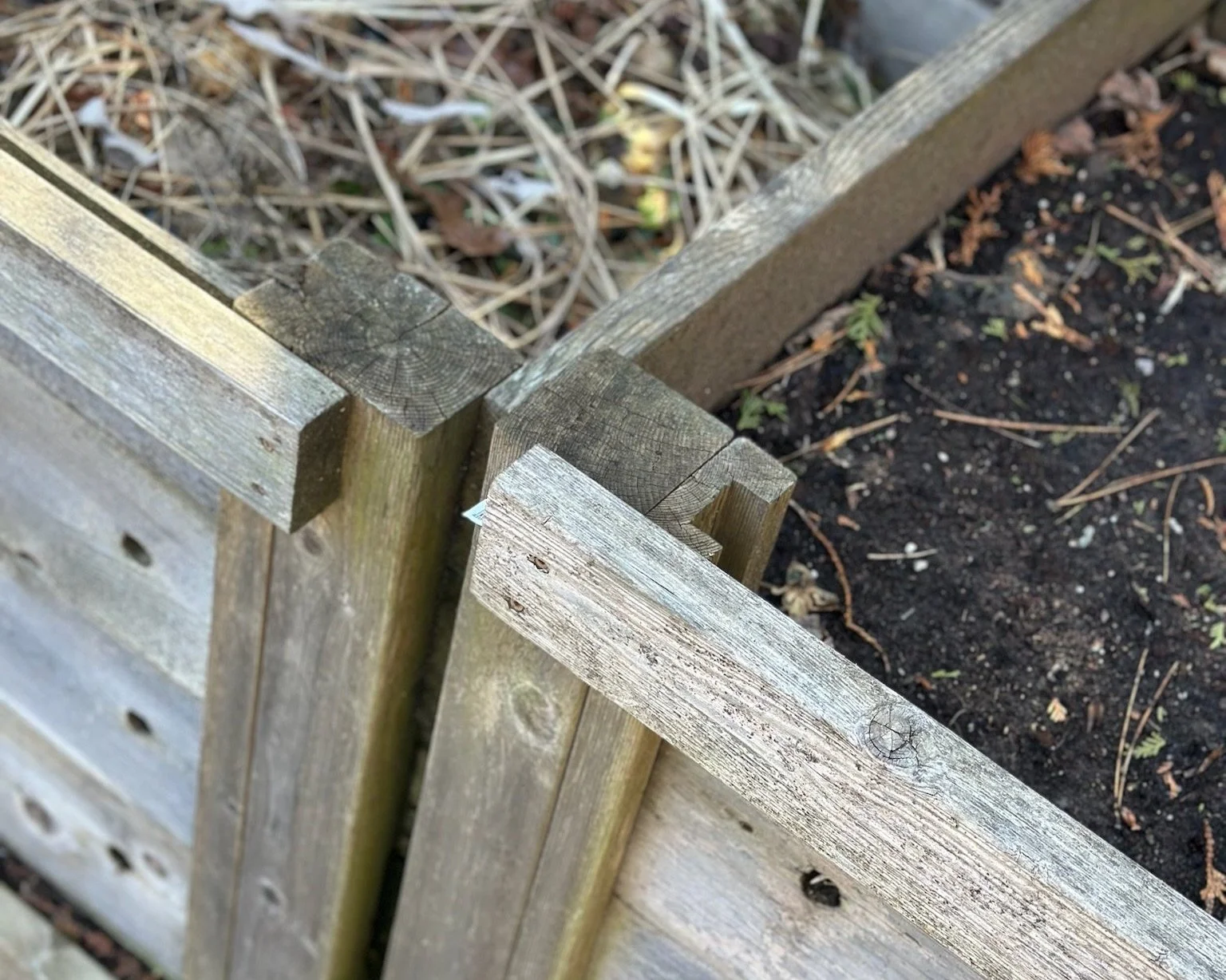Starting Your Compost
If you're thinking about starting a compost bin for the first time, it might feel a bit overwhelming. Here are some tips to help you get started and show that it's not as complicated as it may seem.
Start Small: Don’t worry about making a fancy setup if you don’t have the space or the money. A good saying for anyone getting into gardening for the first time is “You can always start small!”. There is no need to give yourself more stress at the idea of a compost bin. There are so many ways to start your compost. Some people put it directly in the ground, some people buy a barrel that you can spin, and other people build a new structure to keep their compost in. You have to choose what will work for you and your space.
Materials: When starting your compost you will need to acquire the vessel to hold your compost. You can buy a bin, make your own with wood, or use an old trash bin with holes drilled into it. Once you have this ready you will need organic materials to start your compost. Start with adding your green materials like kitchen scraps or grass clippings. Next, you will need brown materials such as dry leaves, egg cartons, or straw. You will need a hose or watering can to easily add water to your compost pile. You will also need a shovel or garden fork to turn your compost. Some people use a thermometer to check the temperature of their compost and make sure it is getting warm enough.
Worms: Worms are well known to be excellent natural decomposers. This makes them a great addition to compost. They accelerate the composting process significantly. Although they can be a good addition to compost they are not necessary. Your compost will still thrive without worms. Often times the worms will move in on their own if conditions are favourable. They might end up there accidentally after you add some organic materials they hitched a ride on. They prefer when compost is moist but not too wet. They need sufficient oxygen, so you should regularly aerate your compost pile to encourage worms to climb on in. If you are interested in other ways of attracting worms into your compost, a good solution to do this is to add some used coffee grounds. Coffee grounds are a great addition to the compost pile for multiple reasons but attracting worms is the cherry on top.
Location: Finding the right location to put your compost is a good way to start with your new setup. You don’t want your compost too close to your house because it could start to smell. You need to have it placed in a location easily accessible to water. You also have to think about how much sun it will receive. Sun speeds up the decomposition process but it will need to be watered more often and can get very hot. If the compost is in full shade it will take much longer to decompose.
Avoiding Rodents and Pests: Rodents and other pests can be such a nuisance when it comes to your compost. We have experienced a squirrel or two digging around in the compost either looking for a snack or burying a snack for later. The messiest of them all are the raccoons. The good thing is you can take some processions to stop them from getting into your compost. The biggest thing you need to avoid is adding any cooked food products including dairy or meat. We talk more about this in What NOT To Compost , you can get a better idea of what else you should avoid adding. You can also add a lid to your compost to stop any animals from digging around in there. Another important step to avoiding pests is to regularly turn over the pile. This speeds up the decomposition process and it will help avoid the bad smells that will attract pests. Having the correct balance of Nitrogen and Carbon is another important step to avoid the strong smells that attract pests. We go into detail about this in Compost Health .



